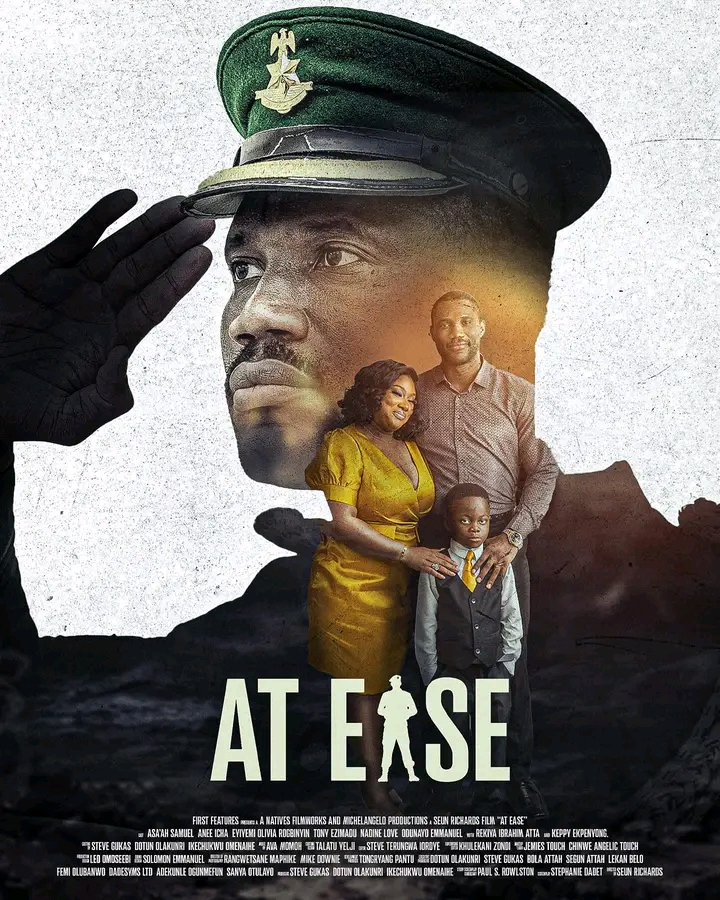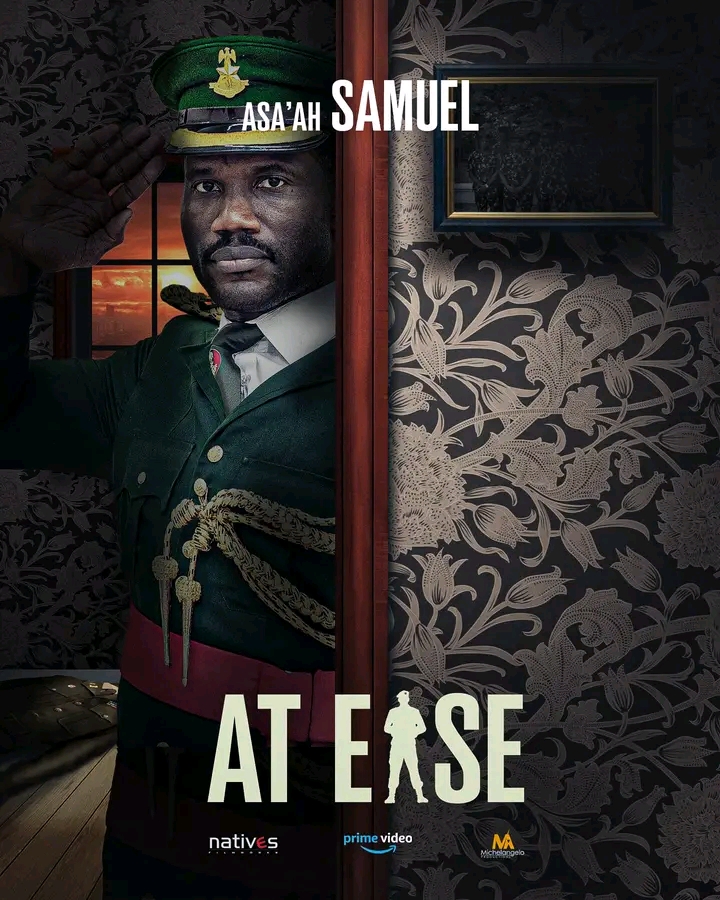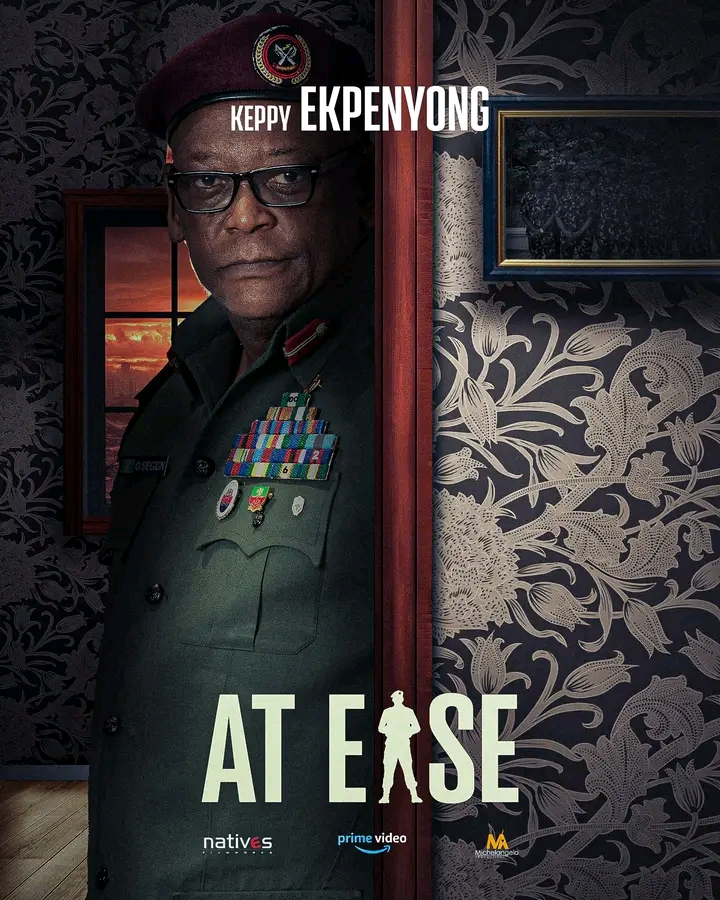I first heard about At Ease from a friend on LinkedIn. The film’s flyer immediately caught my eye, and the title felt intriguing – “At Ease.” It made me curious, and I knew right away that this was something I had to see. Little did I know, I was about to witness a moving story that tackles themes of mental health, family, and the emotional scars of war.
A Journey Through Trauma: Major Agbo’s Story
At Ease, penned by Stephanie Dadet and directed by Seun Richards, unravels the gripping narrative of Major Agbo, a 35-year-old Nigerian Army veteran. Agbo’s life spirals out of control after a devastating bomb blast in Northern Nigeria, leaving him plagued by Post-Traumatic Stress Disorder (PTSD). This condition leads to recurring nightmares, hallucinations, and personal loss. Despite these struggles, Agbo embarks on a painful yet cathartic journey of self-redemption, aided by therapy and the support of loved ones. With a stellar cast including Asa’ah Samuel, Anee Icha, and Keppy Ekpenyong, this film explores the emotional scars of war.

Reflecting on War’s Lasting Impact
As I watched Major Agbo’s battle, I was reminded of the saying, “War is hell… it leaves scars that never truly heal.” Agbo’s trauma runs deep. Imagine waking up from a coma, only to find that the soldiers under your command did not survive, while you lived. This survivor’s guilt drives Agbo to want to return to the battlefield, but his body and mind are no longer equipped for war. When his superior officer, Colonel Segun (played by Keppy Ekpenyong), announces that Agbo is being retired on medical grounds, it feels like the final blow. No medal of honour can soothe the torment of a soldier whose mind is as wounded as his body.

The Quiet Strength of Lara
Anee Icha delivers a powerful performance as Lara, Agbo’s wife. Her quiet strength and unconditional love shine through, even when Agbo’s mental state deteriorates to the point of nearly harming their child. One of the most heartbreaking yet touching moments is when Lara leaves Agbo for their safety, yet continues to check on him, unwilling to give up on the man she married. Her mother’s words echo the tragedy many military families face: “A soldier who has fought many enemies may one day see his family as enemies too.” This line captures the heart of the film’s message about the toll war takes on personal relationships.

Brilliant Casting and Strong Cinematography
Asa’ah Samuel, who plays Major Agbo, was perfectly cast. His physique and commanding voice make him believable as a soldier, while his performance captures the fragility beneath Agbo’s tough exterior. Keppy Ekpenyong, as expected, nails his role as Colonel Segun with a strong, authoritative presence. The cinematography also deserves praise, capturing serene landscapes that contrast with the turmoil inside Agbo’s mind, making it clear this wasn’t shot in the bustling streets of Lagos. The visuals have a soothing, almost therapeutic effect, pulling the audience into Agbo’s world.

Themes of Love, Family, and Mental Health
At its core, At Ease is about more than just war—it’s a story of love, family, and mental health. Agbo’s refusal to seek help, despite the constant support from his wife, is a reflection of many real-life struggles faced by soldiers dealing with PTSD. The movie highlights the importance of mental health care, especially for veterans, and the gap that still exists in society when it comes to providing adequate support. Lara’s unwavering love shows how crucial family is in the healing process, even when it feels like hope is lost.
The Realism and the Unrealistic
While the film captures the emotional depth of its characters, there are moments that feel unrealistic. Surviving a bomb blast with as few visible scars as Agbo has, given the intensity of the explosion, seems improbable. However, this does little to detract from the overall impact of the story. The film ends on a hopeful note, reminding us that in the end, family and healing matter more than medals or battlefield glory.
Final Thoughts
At Ease is a tribute to soldiers who have lost their lives or returned home bearing invisible wounds. It’s a film that speaks not only to military families but to anyone who has ever struggled with trauma. I would rate this movie a solid 7/10. It’s a heartfelt, educative watch, and while it may have its flaws, its message about the importance of mental health and family resonates long after the credits roll.

















